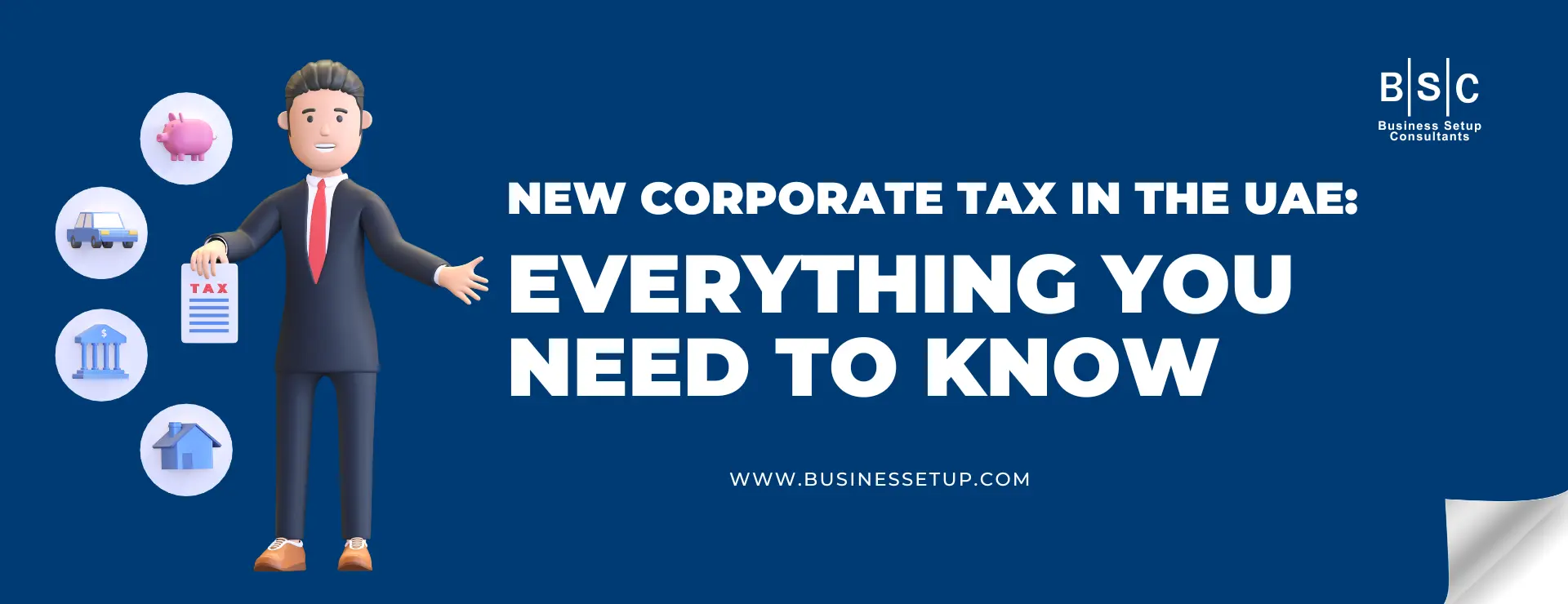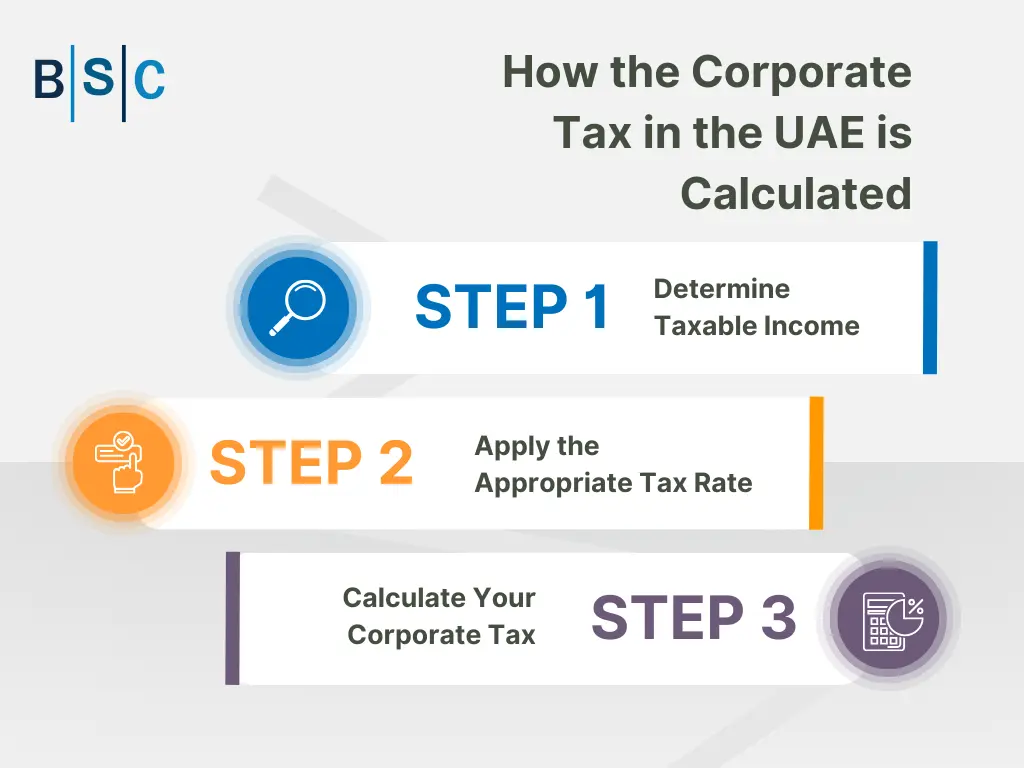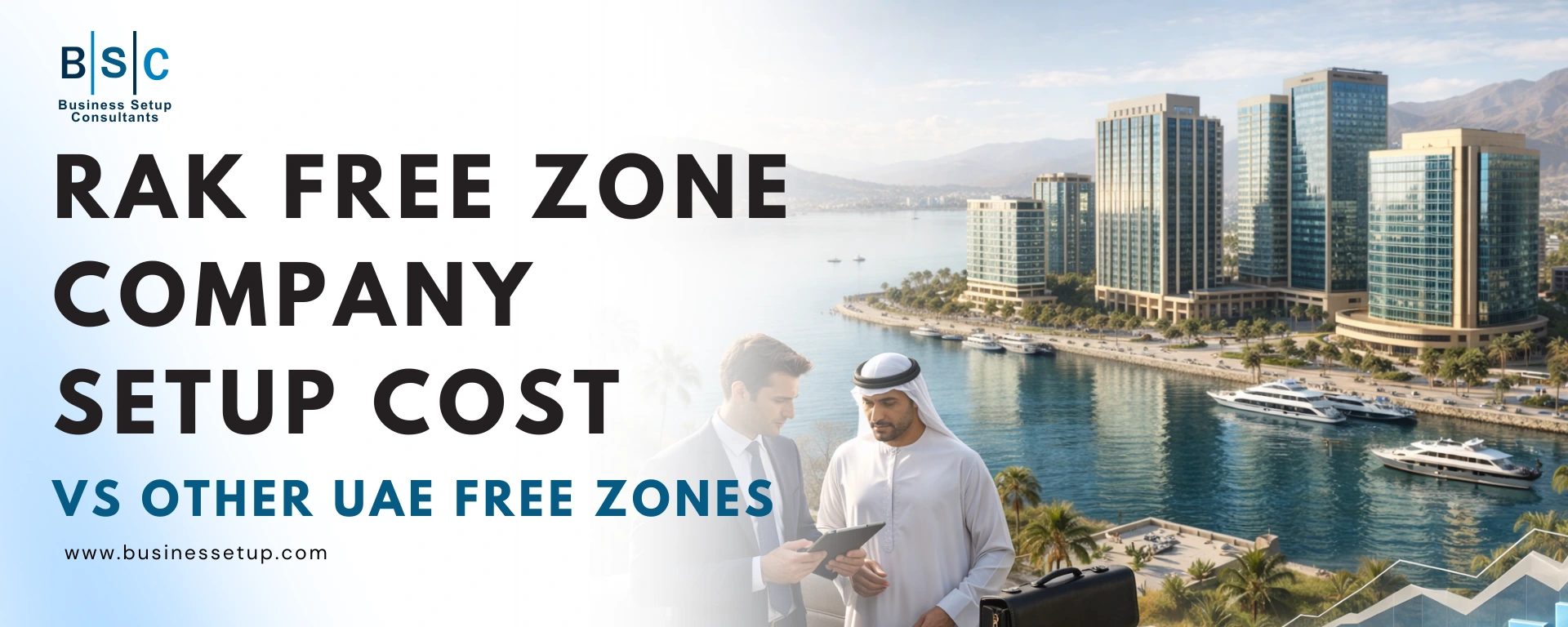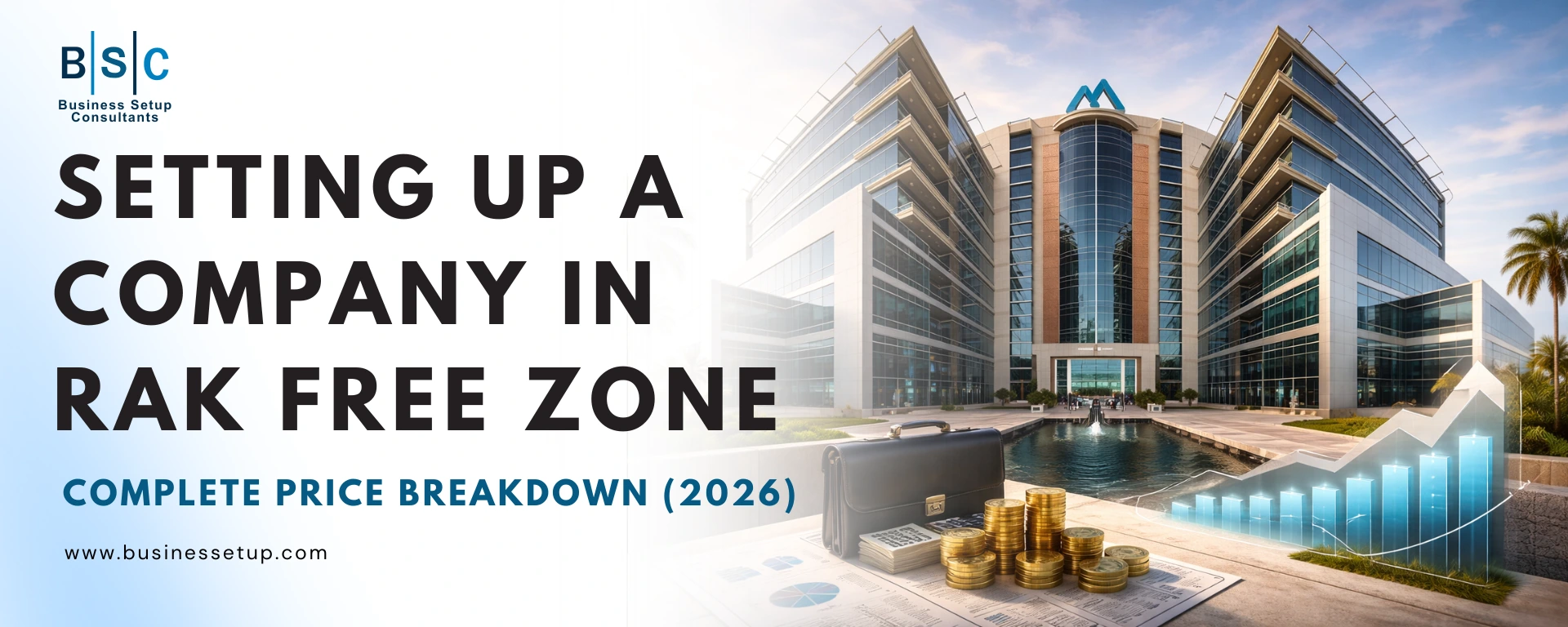
Corporate Tax in the UAE 2024: Everything You Need to Know
In a move towards a more robust tax system, the United Arab Emirates has been rolling out new regulations. The Value Added Tax (VAT) implementation in 2018 marked a significant shift, followed by the Economic Substance Regulations (ESR) introduced in 2019.
The most recent addition to this framework is the Corporate Tax in UAE, which came into effect in June 2023.
- What is Corporate Tax in UAE?
- Who Will Pay Corporate Tax in UAE?
- Who is exempt from Corporate Taxes in UAE?
- Current Corporate Tax Rate in UAE
- How the Corporate Tax in UAE is Calculated
- Corporate Tax Registration Deadline UAE
- How Business Setup Consultants DMCC Can Help
- FAQs
- Who is required to pay Corporate Tax in UAE?
- What are the exemptions from Corporate Taxes in UAE?
- What is the current Corporate Tax rate in UAE?
- Are Free Zone companies subject to Corporate Tax?
- How is Corporate Tax calculated in UAE?
- What is the corporate tax registration deadline UAE?
- How can Business Setup Consultants DMCC assist with Corporate Tax in UAE?
What is Corporate Tax in UAE?
Companies operating within the UAE must remit corporate income tax based on profits earned, with rules laid out in Federal Decree Law No. 60 of 2023 as an authoritative guideline (replacing Federal Decree-Law No. 47 of 2022).
Businesses will become subject to UAE Corporate Tax from the beginning of their first fiscal year that starts on or after 1 June 2023. Staying compliant and up to date is crucial to avoid unexpected problems that might arise later.
Who Will Pay Corporate Tax in UAE?

The tax on corporate income in the UAE will apply to various businesses. For instance:
- Juridical persons (such as corporations) that are incorporated in the UAE or foreign juridical persons that are effectively managed and controlled in the UAE
- Non-resident juridical persons (foreign juridical entities) that have a Permanent Establishment in the UAE
- Non-Resident Persons deriving State Sourced Income
- Foreign businesses and individuals that conduct commercial activities in the UAE.
- Non-resident juridical persons that have a ‘nexus’ in the UAE by virtue of earning income from Immovable Property in the UAE
- Natural persons who conduct Business or Business Activities in the UAE and have a Turnover of over AED 1,000,000 per Gregorian calendar year from such Business or Business Activities
Who is exempt from Corporate Taxes in UAE?
A variety of categories of income sources and companies are exempt from corporation tax in the UAE.
Key Exemptions
- Natural Resource Extraction: Companies that extract natural resources will continue to be subject to the current Emirate-level taxation system.
- Qualifying Shareholdings: Dividends as well as capital gains made by UAE businesses through qualified shares are exempt.
- Reorganizations and Transactions within the Intra-Group: They are exempt from CT when certain conditions are fulfilled.
Additional Exemptions
- Individual Income: This is a combination of salaries as well as interest and earnings from bank savings and deposit schemes.
- Foreign Investors: The income earned by foreign investors through dividends capital gains royalty, interest and various other returns on investments made within the UAE are exempt.
- Individuals Investing in Real Estate: This is applicable to investments made in their own capacity.
- Individuals Earning Income from Shares and Securities: These include dividends, capital gains and other income earned in an individual capacity.
Current Corporate Tax Rate in UAE
The tax regime for corporations in the United Arab Emirates has various rates:
- 0% for income tax as high as AED 375,000
- 9% for income taxable greater than AED 375,000
- A different tax rate for multinational corporations. This rate, still to be defined, will be aligned with the ‘Pillar Two of the OECD Base Erosion and Profit Shifting Project.
The Federal Tax Authority (FTA) is the body that governs the administration, collection, and enforcement of corporate tax within the UAE.
Corporate Tax on Free Zones in UAE
Free Zone companies may be eligible for a special 0% corporate tax rate on their “Qualifying Income in UAE“. Qualifying income is determined based on specific transactional criteria.
However, if a Free Zone business does not meet the requirements outlined in the UAE Corporate Tax Regime for Free Zones, they could be subject to the standard 9% corporate tax rate.
Corporate Tax in Dubai
It is crucial to know that Dubai is not a member of an independent corporate tax system. Corporate tax, which was recently introduced, is a federal tax that is applicable across all emirates of UAE including Dubai. This means that businesses operating in Dubai are subject to the same rules for corporate tax and rates as other regions of the country.
How the Corporate Tax in UAE is Calculated

Take these steps to figure out your company’s tax obligation:
Step 1: Determine Taxable Income
- Begin by calculating your company’s net profit (as it appears on the financial statements of your company).
- Subtract AED 375,000 from the net profit. This is your tax-deductible income.
Step 2: Apply the Appropriate Tax Rate
- 0% Rate: for taxable income up to AED 375,000
- 9% Rate: for taxable income above AED 375,000 and
- A different tax rate (not yet announced) could be applicable to multinational corporations.
Step 3: Calculate Your Corporate Tax
- Multiply your tax-deductible income (from Step 1) by the tax rate applicable (from Step 2) to determine the amount of corporate tax that you owe.
Example
- Net Profit: AED 400,000
- Taxable Income: AED 400,000 – AED 375,000 = AED 25,000
- Tax Rate: 9%
- Corporate Tax: AED 25,000 * 9% = AED 2,250
Corporate Tax Registration Deadline UAE
The UAE’s corporate tax applies to financial years starting on or after June 1, 2023. Your specific corporate tax registration deadline in the UAE will depend on your company’s establishment year.
Companies with an annual fiscal year that runs from June 1st, 2023, until May 31st, 2024, are liable to tax starting in June 2023. Businesses operating in the calendar year (January through December) are tax-exempt until January 2024.
Check with the Federal Tax Authority (FTA) for the most current information and a tax professional for deadlines specific to your company.
How Business Setup Consultants DMCC Can Help
In Business Setup Consultants DMCC, we help businesses navigate the setup process in the United Arab Emirates. Our services include advice on tax-related issues for corporations, and help you understand deadlines for registrations and other tax-related regulations to ensure smooth operation and compliance within the UAE. For more information on how we can assist you, get in touch with us.
FAQs
Who is required to pay Corporate Tax in UAE?
Corporate Tax in the UAE applies to various entities, including juridical persons incorporated in the UAE, non-resident juridical persons with a Permanent Establishment in the UAE, non-resident persons deriving State Sourced Income, foreign businesses conducting commercial activities in the UAE, and natural persons with significant turnover from business activities.
What are the exemptions from Corporate Taxes in UAE?
Several exemptions exist, including income from natural resource extraction, qualifying shareholdings, intra-group reorganizations and transactions, individual income such as salaries and bank interest, income earned by foreign investors, real estate investments by individuals, and income from shares and securities.
What is the current Corporate Tax rate in UAE?
The Corporate Tax rate in the UAE is 0% for income up to AED 375,000 and 9% for income exceeding AED 375,000. Multinational corporations may be subject to a different tax rate, which is yet to be defined and is expected to align with international standards.
Are Free Zone companies subject to Corporate Tax?
Free Zone companies may qualify for a 0% corporate tax rate on their qualifying income in the UAE, subject to meeting specific criteria. However, failure to meet these criteria may result in being subject to the standard 9% corporate tax rate.
How is Corporate Tax calculated in UAE?
Corporate Tax is calculated by determining taxable income, applying the appropriate tax rate (0% or 9%), and multiplying the tax-deductible income by the tax rate. The tax obligation is based on the company’s net profit minus the tax-free threshold of AED 375,000.
What is the corporate tax registration deadline UAE?
The corporate tax registration deadline depends on the company’s fiscal year. Companies with fiscal years starting on or after June 1, 2023, are liable for tax from June 2023 onwards. Specific registration deadlines vary, and companies are advised to consult the Federal Tax Authority (FTA) and tax professionals for accurate information.
How can Business Setup Consultants DMCC assist with Corporate Tax in UAE?
Business Setup Consultants DMCC provides guidance on navigating the setup process in the UAE, including advice on tax-related issues for corporations. They help businesses understand registration deadlines and ensure compliance with tax regulations in the UAE. Contact them for personalized assistance.








